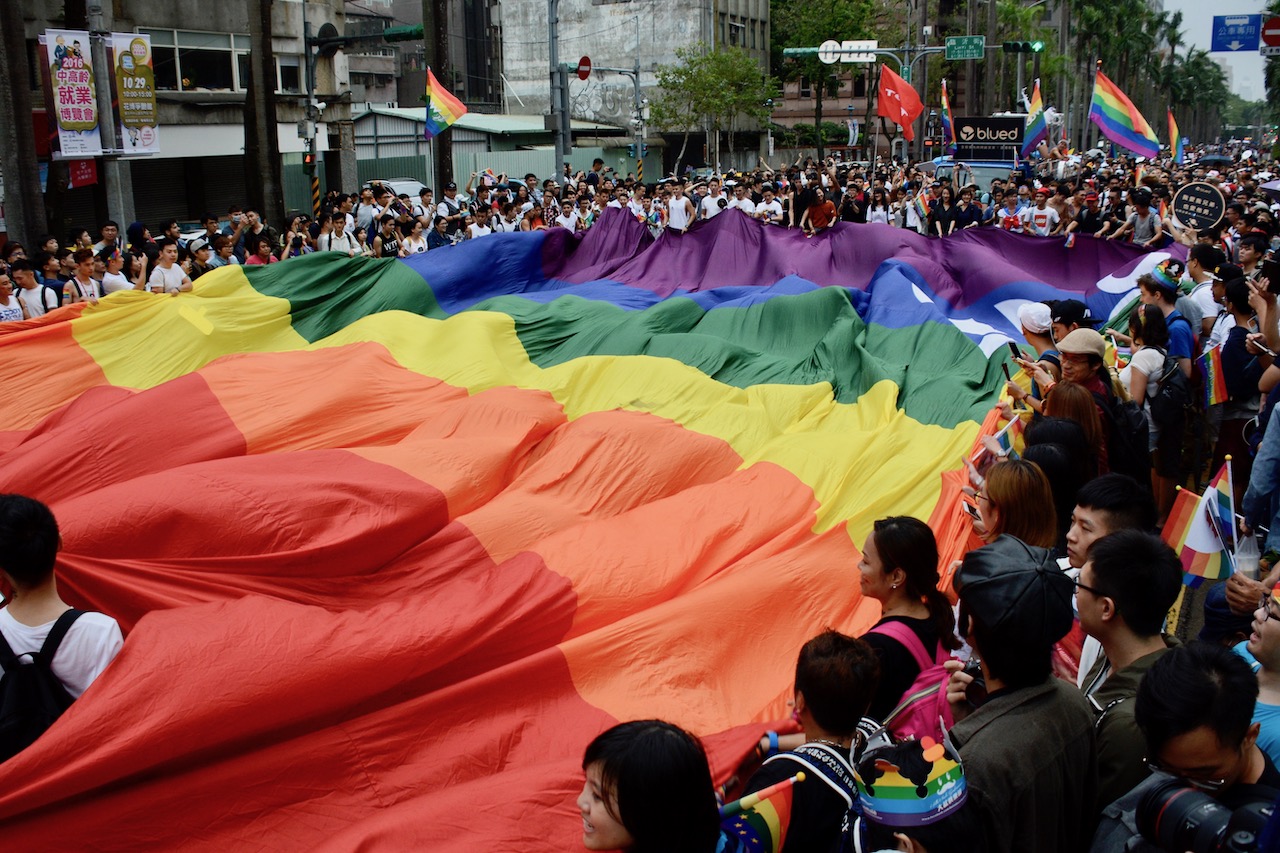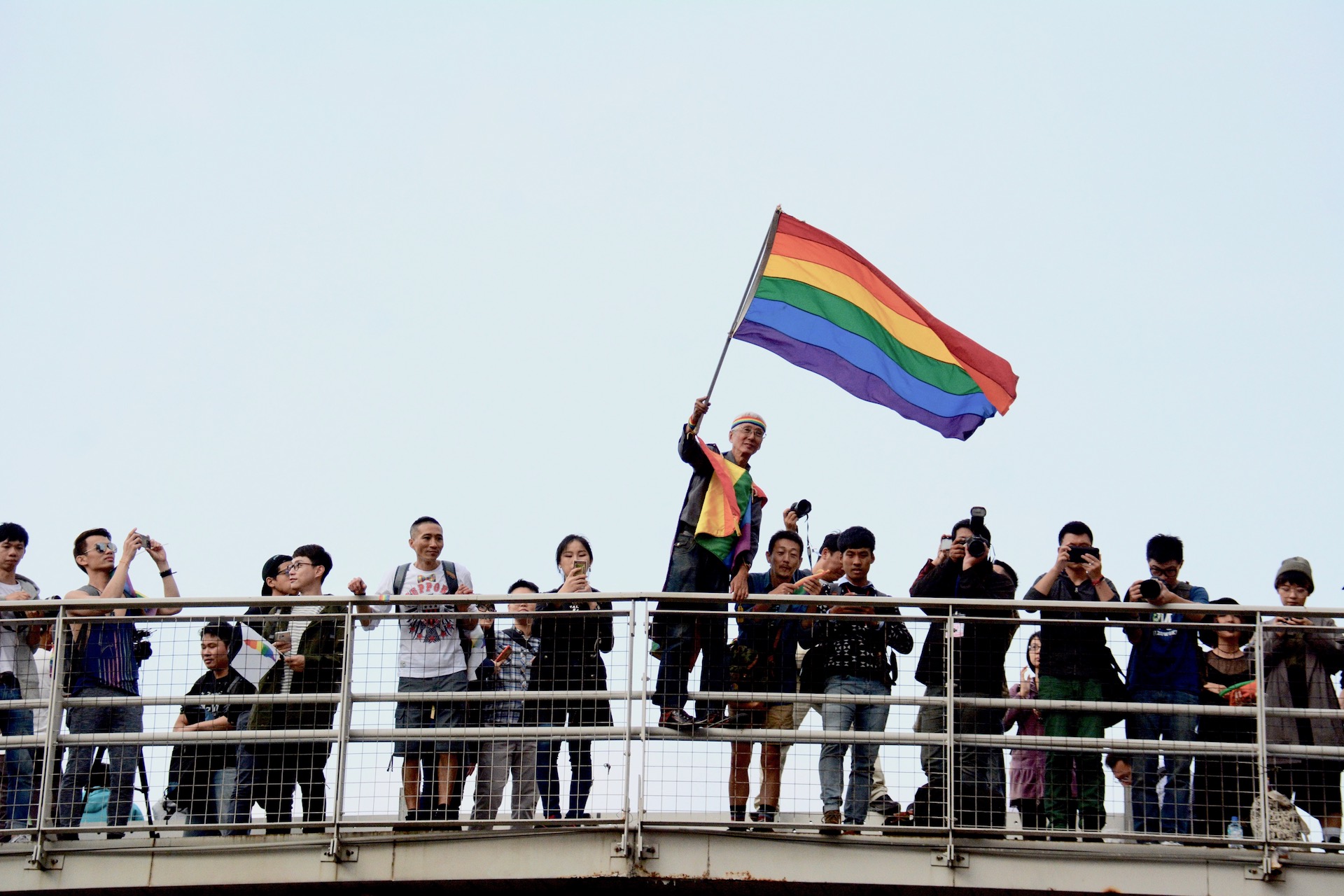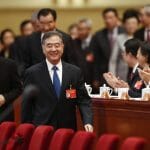President Tsai met supporters and opponents of same-sex marriage on Saturday, and claims that more dialogue is needed on the issue. By doing so, the president creates a moral equivalence that simply does not exist.
President Tsai Ing-wen at the weekend held meetings with both opponents and proponents of same-sex marriage at the Presidential Office and asked Vice President C.J. Chen to chair a platform for dialogue between the two sides over an issue that has caught the attention of the international community in recent months as Taiwan moves closer to becoming the first country in Asia to legalize same-sex unions.
In a post on her official Twitter feed on Feb. 18, President Tsai wrote that, “Today I met with reps from both sides of same sex marriage issue. Resolving differences is a start — more dialogue & understanding needed.”

On the surface, President Tsai’s decision to meet groups from both sides of the divide looked like a logical appeal for conflict resolution after months of acrimony and escalating rhetoric on the side of opponents of marriage equality. After all, President Tsai is supposed to be a president for all the people and her administration should encourage dialogue on divisive issues.
At least in theory, and whenever dialogue and resolving differences is possible.
Some essential context about Saturday’s meetings before we move on: while Tsai’s Democratic Progressive Party (DPP) has spearheaded efforts to amend the Civil Code to make marriage equality permissible, it is well known that the executive branch of the administration, including President Tsai herself, has been far less enthusiastic about the issue, despite the fact that Tsai and her DPP campaigned on a platform of marriage equality in the lead-up to the January 2016 general elections.
Tsai’s government has in fact been taken aback by the momentum for legalization and has made little secret of its hopes that other issues would be given precedence. But by including marriage equality into its platform, and with the DPP winning both the executive and securing, for the first time in Taiwan’s history, control of the legislature, it should not exactly come as a surprise that the LGBTQI community and their supporters would see this historic victory as an unprecedented opportunity to make history by passing legislation that not only allows same-sex unions but extends the same rights to homosexuals as the Constitution currently ensures for other citizens.
In a nutshell, while civil society and the DPP are making steady progress in the legislative branch of government, the executive doesn’t want to hear about it: marriage equality has become a headache for the Tsai administration, especially after largely Christian-led opponents organized a protest outside the Presidential Office on Dec. 26 after the legislature’s Judiciary and Organic Laws and Statutes Committee reviewed and passed a proposed amendment to the Civil Code.
Based on this, we are in a better position to assess what President Tsai was hoping to accomplish by agreeing to meet both sides of the dispute at the weekend. Was the object, as her Tweet leads us to believe, an attempt to encourage dialogue and understanding, or was it merely a stalling tactic, especially given the fact that VP Chen, who will head the platform for dialogue between the two sides, is himself a devout Catholic?
By giving equal weight to both sides and calling for dialogue and understanding — dialogue that has been taking place for years, by the way— President Tsai creates the illusion that a moral equivalence exists, and that the side that seeks to deny rights to a minority using outright lies has as much a say as the other.
Furthermore, President’s call for dialogue, while seemingly equanimous, is undermined by the fact that one side of the divide — the opponents to marriage equality — have long relied on discrimination, fabrication, selective interpretations of holy texts, and fear-mongering to make their case against same-sex marriage. By giving their argument equal weight, President Tsai creates a moral equivalence that simply does not exist. Such decisions as whether to legalize same-sex unions should ultimately be based on the facts and the evidence provided by the societies that have already adjusted their legal systems to reflect reality, not on the compendium of confabulatory — and outrightly discriminatory — “evidence” that has been fed us by those organizations (now with assistance from U.S.-based hate groups) in recent years. It’s incredibly hard to imagine how one can have a rational dialogue, let alone understanding, with a counter-party that argues, without a shred of evidence (but loads of malice), that allowing same-sex marriage would lead to an AIDS epidemic, bestiality, rape, the destruction of the family unit, social chaos, and other dystopian outcomes. By agreeing to meet both sides, President Tsai gave a voice to a movement whose sole aim is to deny the rights of a segment of society based solely on their sexual preferences and gender identity — it gives reason and discrimination equal weight, as if those who argued that segregation, that black people should be kept apart from society due to their inferior racial traits, had a point.
If there indeed were an opportunity — and the will — to learn, then President Tsai’s Saturday meetings would be reason to celebrate. But the side that opposes same-sex unions will never, ever, countenance, the idea of extending the same rights to homosexual individuals. There is no dialogue with those people, as I experienced myself when I joined a panel on same-sex marriage in January 2014, when, for half an hour, all I heard were lies, science fiction, and an unwillingness on the other side’s part (a spokesman for the organization that has mobilized against same-sex marriage in Taiwan) to meet their opponents half-way. Theirs is a rigid, unyielding, and ultimately totalitarian view of the world, with no permission for accommodation.
Human rights are binary; either you grant them to a vulnerable, underrepresented minority, or you don’t. There are no half measures. By giving equal weight to both sides and calling for dialogue and understanding — dialogue that has been taking place for years, by the way— President Tsai creates the illusion that a moral equivalence exists, and that the side that seeks to deny rights to a minority using outright lies has as much a say as the other. Yet, having worked for her for two years and a half, I know that President Tsai is no fool and that she can tell right from wrong, that she can distinguish between reality and malice passing off as religious belief. I’m certainly not saying that (primarily) Christian organizations should not be allowed to express their opinion; but to give their unscientific (and discriminatory) views equal weight is another thing altogether, more an abdication of a leader’s moral responsibility than a shot for impartiality.
I can only conclude, therefore, that President Tsai’s decision to meet both sides, and to agree to the language used in her Tweet, was a stalling tactic.
You might also like
More from Society & Culture
Media and Free Expression in Taiwan Are Under Attack: What Can be Done?
How can we avoid the imposition of a blanket silence which can only empower our enemies and damage our democracy? …
Taiwanese Views on Homosexuality Based on Proximity of Relationship, Study Shows
The legalization of same-sex marriage in Taiwan should be viewed not just as a culmination of years of advocacy efforts …
Challenges Remain Following the Legalization of Same Sex Marriage in Taiwan
Despite the adoption of a new law on May 17, campaigns will continue to legitimize the kind of homophobic discourse …









